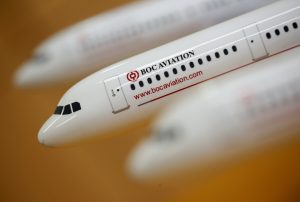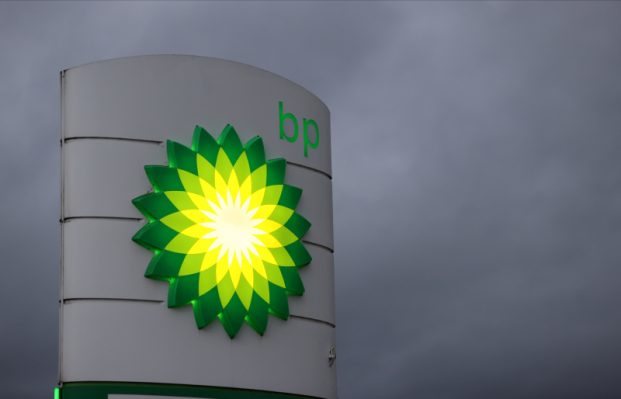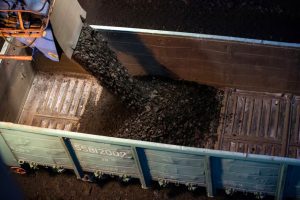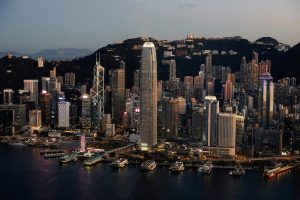BP opened a new front in the West’s campaign to isolate Russia’s economy by deciding to exit its Russian oil and gas investments, the most aggressive move yet by a company in response to Moscow’s invasion of Ukraine.
Western allies have ramped up efforts to punish Russia by closing airspace to Russian aircraft, shutting out some banks from the SWIFT financial network and limiting Moscow’s ability to deploy its $630 billion foreign reserves, all measures that are expected to hammer the economy.
The rouble plunged as much as 30% to an all-time low against the dollar on Monday, prompting the central bank to more than double its key interest rate to 20% to prop it up.
BP, Russia’s biggest foreign investor, said it was abandoning its stake in state controlled energy firm Rosneft at a cost of up to $25 billion, cutting the British company’s oil and gas reserves in half.
The move puts a spotlight on other Western firms with operations in Russia, including BP’s rivals such as France’s TotalEnergies and Britain’s Shell, amid pressure from governments to tighten the financial screws on Moscow after it launched the biggest assault on a European country since World War Two.
Equinor, the energy firm majority owned by the Norwegian state, said on Monday it would start divesting its joint ventures in Russia. Norway’s sovereign wealth fund, the world’s largest, will also divest its Russian assets, worth around 25 billion Norwegian crowns ($2.8 billion).
Australia’s sovereign wealth fund also said it planned to wind down its exposure to Russian-listed companies.
Off Limits
Large parts of the Russian economy will be a no-go zone for Western banks and financial firms after the decision to cut some of its banks off from SWIFT, a secure messaging system used for trillions of dollars’ worth of transactions around the world.
Even neutral Switzerland will likely follow the EU in imposing sanctions on Russia and freezing Russian assets, its president said on Sunday.
Russians queued at ATMs over the weekend worried that sanctions would trigger cash shortages.
Western companies with exposure to Russia also took a knock. Shares fell in Societe Generale, the French bank that owns Russia’s Rosbank, and carmaker Renault, which controls Russian carmaker Avtovaz.
Finnair tumbled 21% after it withdrew guidance for 2022 due to the potential closure of Russian airspace.
The EU has banned Russian media outlets RT and Sputnik, while Canadian telecoms operators also stopped offering the RT channel. Google has barred RT and other Russian channels from receiving money for ads on websites, apps and YouTube videos, similar to a move by Facebook.
The European Union’s internal market chief told the chief executives of Google-owner Alphabet and its YouTube unit on Sunday to ban users pushing war propaganda as part of measures to halt disinformation on Ukraine.

Plane Leases, Airlines to Take Big Hit
Lessors are set to terminate hundreds of aircraft leases with Russian airlines following Western sanctions over the invasion of Ukraine that require the contracts be cancelled.
Asian lessor BOC Aviation said on Monday that most of its aircraft in Russia would be affected by European Union sanctions that require the leases be terminated by March 28.
Russian companies have 980 passenger jets in service, of which 777 are leased, according to analytics firm Cirium. Of these, two-thirds, or 515 jets, with an estimated market value of about $10 billion, are rented from foreign firms in the mainly Ireland-based industry.
AerCap Holdings, the world’s biggest leasing company, has the largest exposure to Russia and Ukraine with 152 planes, according to aviation consultancy IBA.
AerCap said it would cease its leasing activity with Russian airlines in compliance with sanctions, adding that as of December 31 5% of its fleet by net book value was leased to Russian carriers.
The lessor has over 2,000 planes in its total portfolio and its Russian clients include Aeroflot, S7 Airlines, Rossiya, Azur Air and Ural Airlines, its website shows.
Meanwhile, European nations and Canada also took the unprecedented step of shutting their airspace to Russian aircraft. The United States was considering a similar move, US officials said.
Canada said on Sunday it was investigating a violation of its airspace by Russian airline Aeroflot.
US-based United Parcel Service and FedEx, two of the world’s largest logistics companies, said they were halting delivery services to Russia and Ukraine.
• Reuters with additional editing by Jim Pollard
ALSO on AF:
Chinese Payment Stocks Soar Amid SWIFT Curbs Against Russia
Sanctions On Russia Remind China Over Its Need For Chips
China Not Seen Aiding Russia Evade Sanctions: US Official
US Warns Chinese Companies Against Evading Russia Sanctions
























